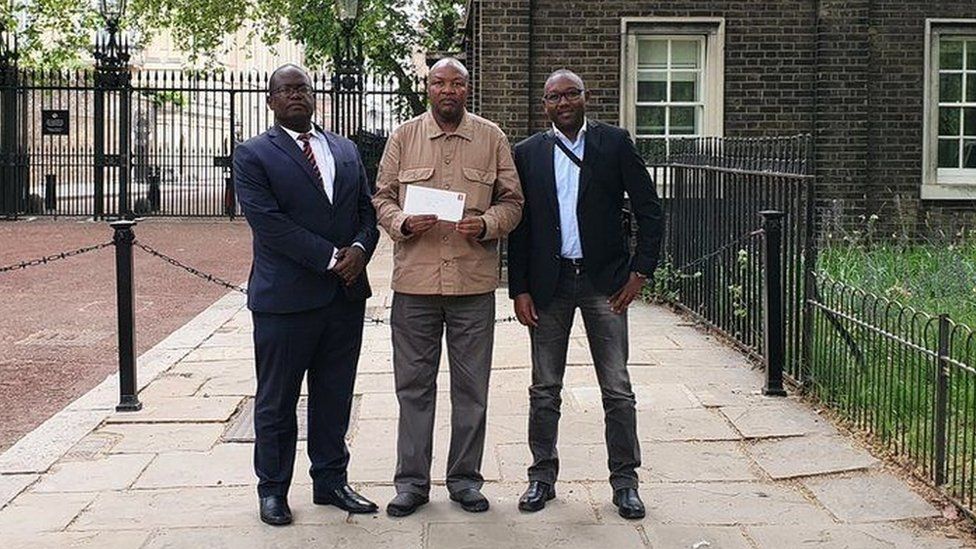A group of Kenyans have filed cases against the UK government at the European Court of Human Rights (ECHR) for alleged colonial abuses.
These include alleged theft of land, which is still being used by tea firms.
The clans say the UK’s alleged lack of engagement to seek redress has violated the European Convention on Human Rights.
The UK Foreign Office has told the BBC it was “inappropriate to comment on legal proceedings”.
Representatives for the Talai and Kipsigis, who are originally from Kericho county, say they tried to meet with UK Foreign Secretary Liz Truss in May 2022 but were turned down.
The Talai clan say its members were forcefully evicted from fertile land in the highlands of the Rift Valley to pave the way for tea plantations.
The Talai led the resistance against European settlement.
To quash it, every member of the clan was forcefully moved to detention in a tse-tse fly and mosquito infested valley near present day Lake Victoria. The conditions there are recorded to have been so harsh that many of them died and women suffered miscarriages. They also lost their livestock in large numbers.
When Kenya gained independence in 1963, the survivors left detention and returned to what they considered their ancestral land. But they never recovered it. They say they’ve lived alongside the tea estates as squatters ever since.
A lawyer for the claimants told the BBC’s Focus on Africa radio programme that they want “compensation” in the region of $200bn (£168bn), an “apology” and to open up a new chapter of “mutual respect”.
“These atrocities started in 1902 all the way to 1962”, Joel Kimutai Bosek said. “We are talking about separating families. Some people getting lost never to be seen again. We are talking about torching of houses, we are talking about removing people from their ancestral lands,” he continued.
Representatives for the Kipsigis and Talai said the filing of the cases was a “big milestone” and “the culmination of many years of attempts to engage with the British government directly in order to amicably resolve the issues” going back as far as 2019, they say.
The lodging of the case at the ECHR does not mean that the court will definitely hear the case, but will decide on the its admissibility before making a decision.
One of the alleged victims, Kibore Cheruiyot, was 10 when he says his family was forcibly evicted along with other people from his clan who were relocated far away from home.
“Life was really bad,” he said. “I only survived by God’s grace. My brother was not so lucky. He was bitten by a snake and died. Seven members of my family also died.”
“There were tse-tse flies that bit the animals and people, and many people died,” he continued.
The lodging of the legal cases at the ECHR is not the first time their plight has reached international attention.
In 2021, six UN special rapporteurs wrote a joint communiqué expressing their “concern at the alleged lack of accountability and effective remedy for the victims of gross human rights violations committed against the Kipsigis and Talai people of Kericho county”.
In response, the UK government said it had already issued a public apology and settlement in 2013 of claims made by Kenyans who lived through the emergency period and the Mau Mau insurgency, from 1952 to 1963 when Kenya gained independence.
However, the Kipsigis and Talai maintain that the case the British government referred to in its response is a separate case.
Meanwhile there have been accusations of a wider set of gross human rights violations committed against the clans, including unlawful killing, sexual violence, torture, and arbitrary detention and displacement.
In May of this year a group of more than 100,000 Kenyans from the Talai clan wrote to Prince William to seek an apology as well as his support for reparations.
Kenyans seek to sue UK for alleged colonial abuses – .
